
Faranah: The Heartbeat of Guinea's Natural Beauty
Welcome to Faranah, a city that offers an authentic and intimate look into the natural splendor and rich culture of Guinea. Nestled along the banks of the Niger River, Faranah provides a serene escape into lush landscapes and vibrant local traditions. With its welcoming atmosphere, it is a perfect destination for those seeking to experience the true essence of West African life. One of the city's main attractions is its proximity to the majestic Mount Loura and the surrounding highlands, which are ideal for hiking and exploring. The area is teeming with wildlife, making it a haven for nature lovers and birdwatchers. The city's markets are bustling with activity, offering a chance to sample local delicacies and purchase handcrafted goods that reflect the region's cultural heritage. Faranah is also known for its historical significance. It was the birthplace of Sekou Touré, Guinea's first president, and his legacy can be explored through various monuments and museums in the city. The city's warm and hospitable people will make you feel at home, and their stories will add depth to your understanding of this unique part of the world.
Local tips in Faranah
- Visit the local markets early in the morning for the freshest produce and to experience the lively atmosphere.
- Hire a local guide for hiking trips to Mount Loura to ensure a safe and informative adventure.
- Try traditional Guinean dishes like 'fufu' and 'jollof rice' at local eateries for an authentic culinary experience.
- Learn about the history of Sekou Touré by visiting the monuments and museums dedicated to his legacy.
- Bring binoculars for birdwatching as the area around Faranah is home to a diverse range of bird species.
Faranah: The Heartbeat of Guinea's Natural Beauty
Welcome to Faranah, a city that offers an authentic and intimate look into the natural splendor and rich culture of Guinea. Nestled along the banks of the Niger River, Faranah provides a serene escape into lush landscapes and vibrant local traditions. With its welcoming atmosphere, it is a perfect destination for those seeking to experience the true essence of West African life. One of the city's main attractions is its proximity to the majestic Mount Loura and the surrounding highlands, which are ideal for hiking and exploring. The area is teeming with wildlife, making it a haven for nature lovers and birdwatchers. The city's markets are bustling with activity, offering a chance to sample local delicacies and purchase handcrafted goods that reflect the region's cultural heritage. Faranah is also known for its historical significance. It was the birthplace of Sekou Touré, Guinea's first president, and his legacy can be explored through various monuments and museums in the city. The city's warm and hospitable people will make you feel at home, and their stories will add depth to your understanding of this unique part of the world.
When is the best time to go to Faranah?
Iconic landmarks you can’t miss
Grande Mosquée de Conakry
Explore the Grande Mosquée de Conakry, a stunning architectural gem that showcases Guinea's rich cultural and religious heritage in the heart of Conakry.
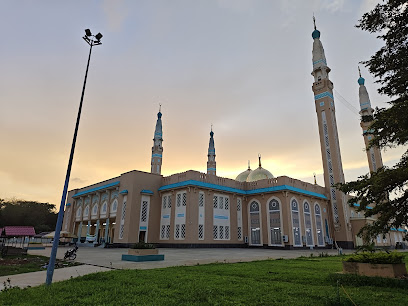
National Museum of Guinea
Explore Guinea's diverse cultural heritage at the National Museum of Guinea, a treasure trove of artifacts and history in Conakry.
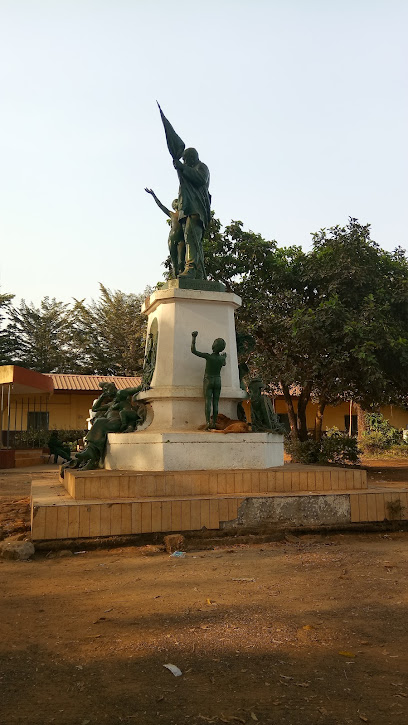
National Park of Upper Niger
Explore the breathtaking landscapes and rich biodiversity of the National Park of Upper Niger, a hidden gem in Guinea for nature lovers and adventure seekers.
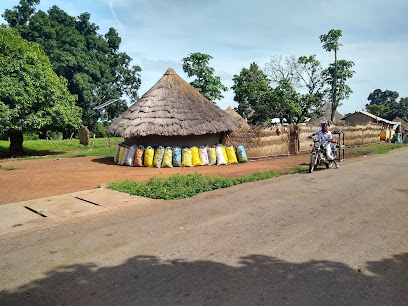
植物園
Discover the serene beauty of Plant Garden, a lush oasis in Conakry, Guinea, perfect for relaxation, picnics, and nature walks.
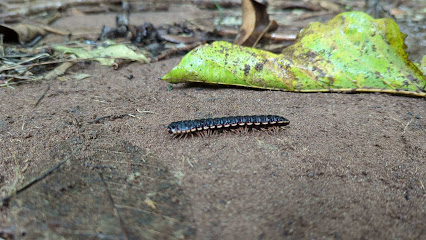
Grande Mosquée de Faranah
Discover the Grande Mosquée de Faranah, a stunning architectural gem reflecting Guinea's rich Islamic heritage and spiritual life.
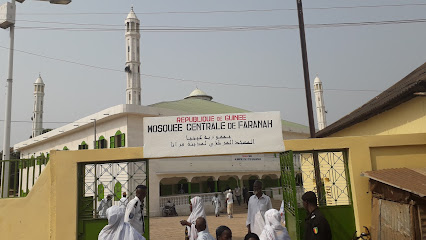
Guinée faranah le Général
Discover the spiritual and architectural beauty of the General Mosque in Guinée Faranah, a must-visit for travelers seeking cultural immersion.
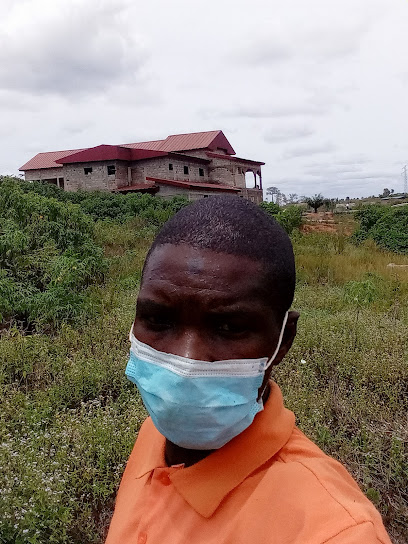
Jardins du 2 Octobre
Discover the tranquil beauty of Jardins du 2 Octobre, a serene garden in Conakry, Guinea, perfect for relaxation and connecting with nature.
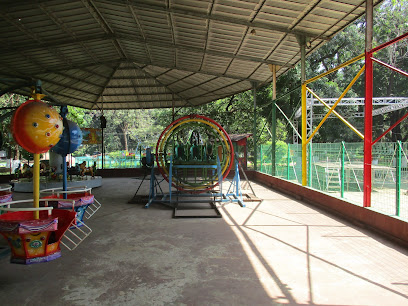
HÔTEL RÉSIDENCE FARAFINAH BIS
Experience the warmth of Guinean hospitality at Hôtel Résidence Farafinah Bis, your cozy retreat in Kankan, ideal for cultural exploration.
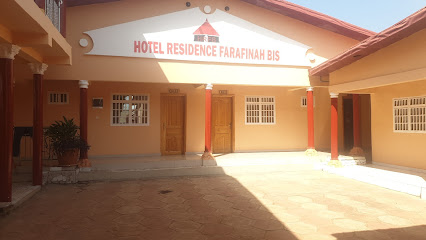
Motel Farafinah
Discover comfort and local charm at Motel Farafinah in Kankan, Guinea, a perfect base for exploring the rich culture of the region.
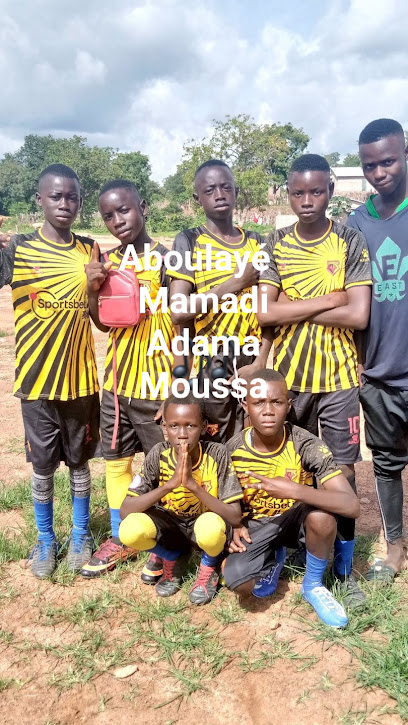
WAKANDA BEACH
Experience the tranquility and natural beauty of Wakanda Beach in Conakry, Guinea, a perfect getaway for relaxation and local culture.
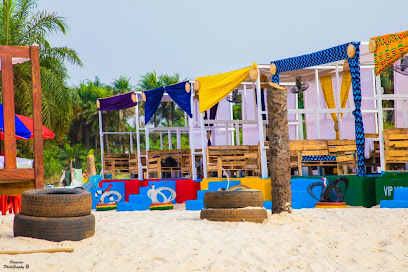
FARANAH
Discover the architectural beauty and serene ambiance of Faranah Mosque in Tiendou, a cultural gem in Guinea that embodies the spirit of community and faith.

Unmissable attractions to see
Grande Mosquée de Conakry
Explore the Grande Mosquée de Conakry, the largest mosque in Guinea, showcasing stunning Islamic architecture and rich cultural heritage.
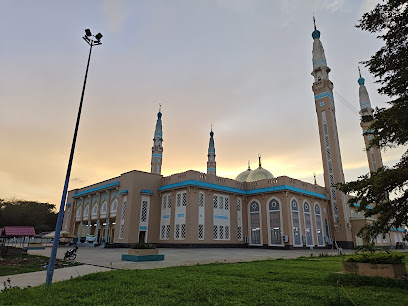
National Museum of Guinea
Explore Guinea's cultural tapestry at the National Museum of Guinea, a treasure trove of history, art, and tradition in Conakry.
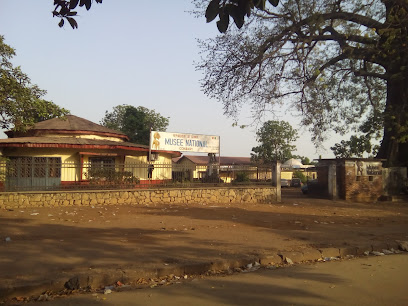
National Park of Upper Niger
Discover the enchanting landscapes and rich biodiversity of the National Park of Upper Niger, a hidden gem for nature lovers in Guinea.
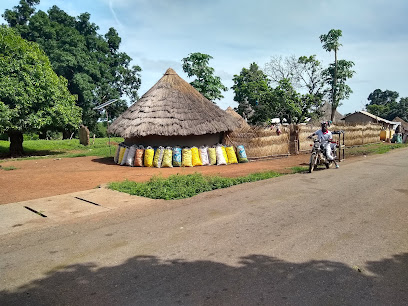
Kangari Hills Forest Reserve
Explore the untouched beauty of Kangari Hills Forest Reserve, a national park rich in biodiversity and stunning landscapes in Sierra Leone.
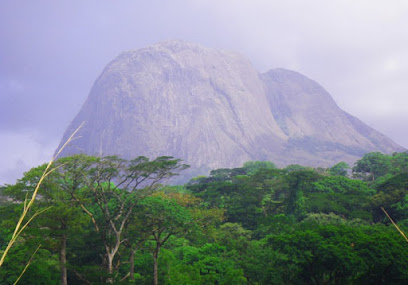
Gola Rainforest National Park
Explore Gola Rainforest National Park, a breathtaking national park in Sierra Leone known for its rich biodiversity and stunning natural beauty.
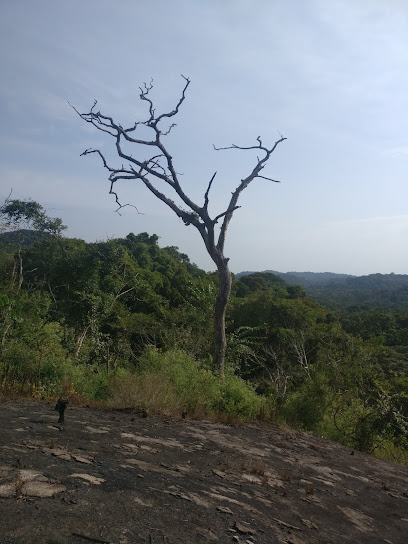
Gola Forest Reserve
Discover the breathtaking beauty and rich biodiversity of Gola Forest Reserve, a national treasure in Sierra Leone perfect for nature lovers and adventure seekers.
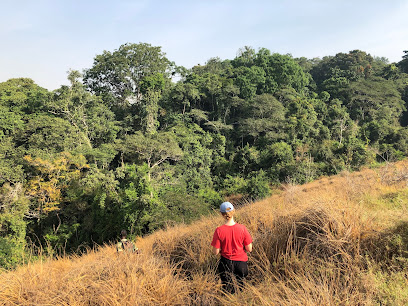
Forêt guinéenne de l'Ouest africain
Discover the breathtaking biodiversity and captivating landscapes of Forêt Guinénne de l'Ouest Africain, a national forest teeming with nature's wonders in Sierra Leone.
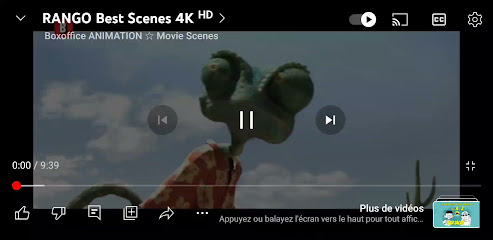
Artisanal Diamond Mine
Discover the rich cultural heritage and diamond mining tradition at the Artisanal Diamond Mine in Old Sefadu, Sierra Leone.
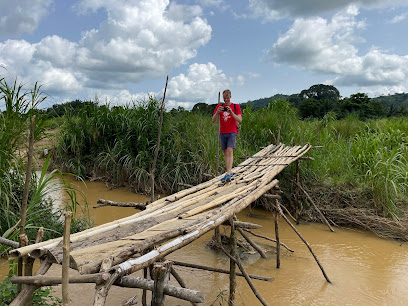
Rokel river beach
Discover the tranquility of Rokel River Beach in Makeni, Sierra Leone, where stunning views and local culture create a perfect getaway.
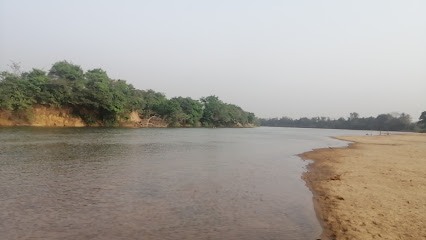
Essential places to dine
Restaurante Papa Loca
Experience authentic Guinea-Bissau cuisine at Restaurante Papa Loca - where tradition meets taste in every dish.
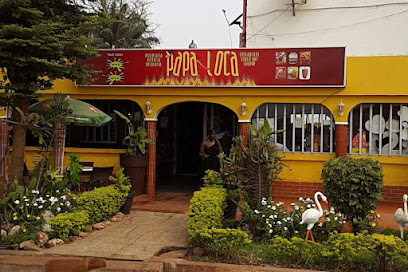
Avenue
Discover Avenue in Conakry: where local flavors meet warm hospitality in an unforgettable dining experience.
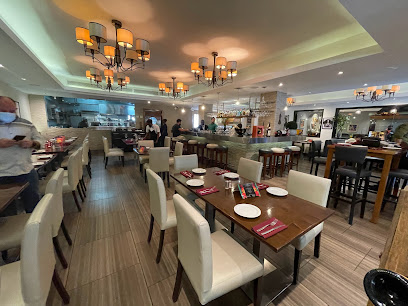
Le Special
Discover the flavors of Guinea at Le Special, where traditional dishes meet a vibrant atmosphere in the heart of Conakry.
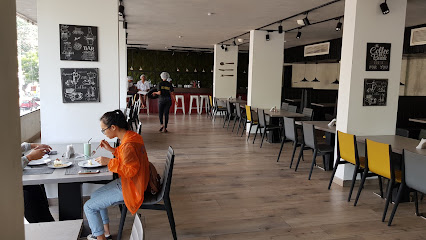
A Padeira Africana
Experience authentic African cuisine at A Padeira Africana in Bissau - where every dish tells a story.
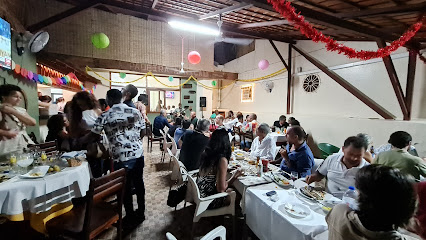
Almagui Restaurante & Apart-Hotel
Discover authentic Guinea-Bissauan cuisine at Almagui Restaurante & Apart-Hotel while enjoying comfortable accommodations in Bissau.
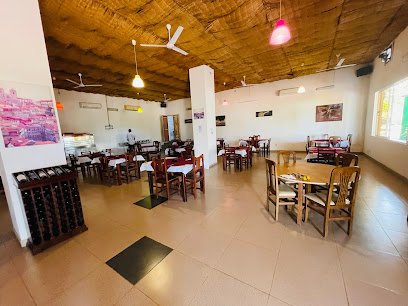
La Luna
Experience exquisite fine dining at La Luna in Malabo – where local flavors meet international cuisine in an elegant setting.
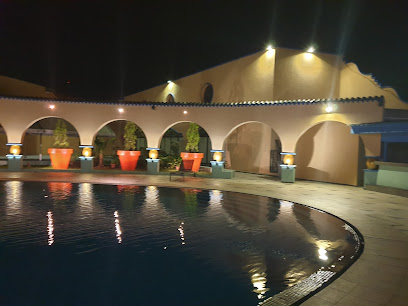
Le Patio
Experience exquisite local and international cuisine at Le Patio in Conakry – where every meal tells a story.
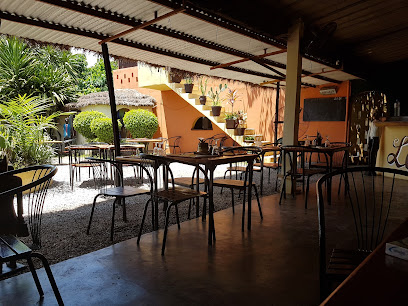
Italia Box
Discover authentic Italian flavors at Italia Box in Conakry - where delicious pizzas meet exquisite pastries in a charming setting.
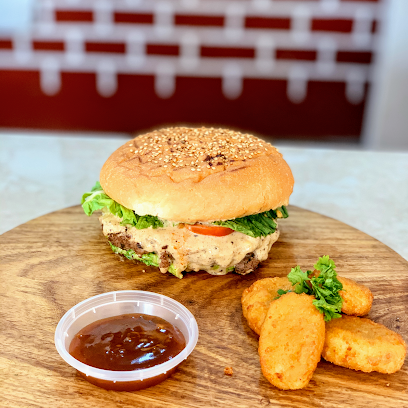
Restaurant Hanoi
Experience the authentic taste of Vietnam at Restaurant Hanoi in Conakry – where every dish tells a story.
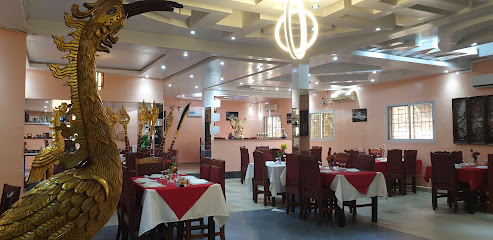
Heroes Coffee Station T2
Discover delicious fast food at Heroes Coffee Station T2 in Conakry – your ideal stop for quick bites and local flavors.
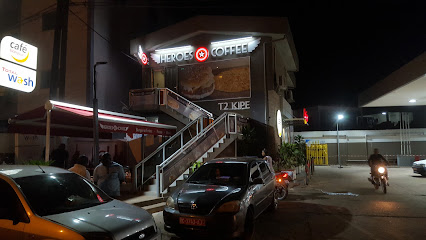
Bidji Binia
Discover authentic Italian flavors at Bidji Binia in Malabo - where every pizza tells a story!
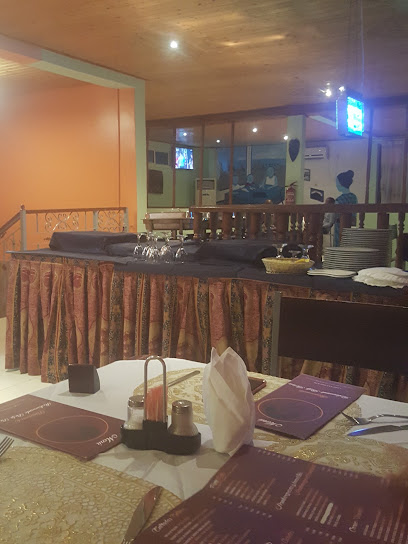
Favela
Discover Favela: A Culinary Oasis in Conakry Offering Authentic Guinean Cuisine and Lively Atmosphere.
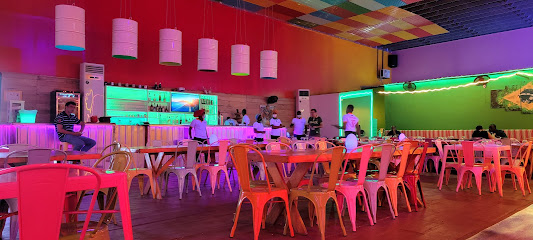
L'Atelier
Experience exquisite dining at L'Atelier in Malabo; where local flavors meet international cuisine in an elegant setting.
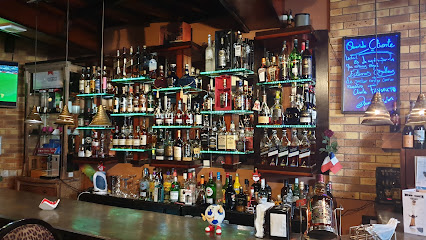
Le Beau Village
Experience authentic Guinean hospitality at Le Beau Village – where comfort meets culinary delight in Conakry.
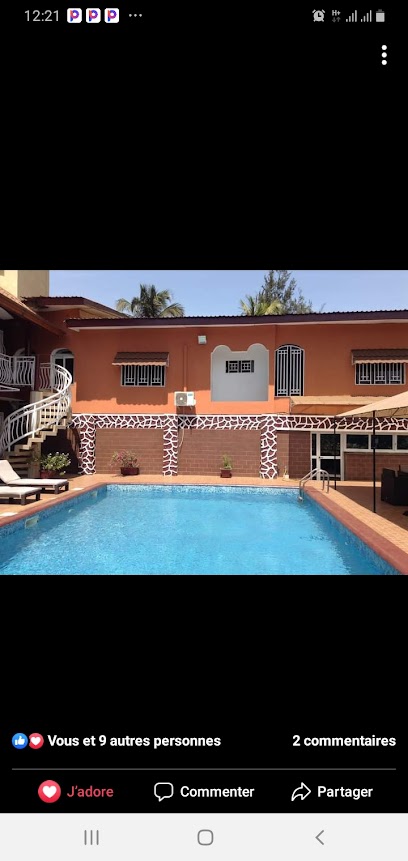
Restaurante Imagine
Discover exquisite Equatorial Guinean cuisine at Restaurante Imagine in Malabo – where every meal is a delightful journey.
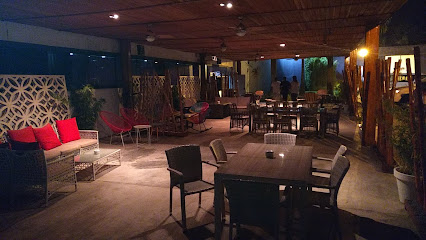
Markets, malls and hidden boutiques
Marche du Niger
Experience the lively atmosphere of Marche du Niger, Conakry's bustling market filled with local goods, street food, and vibrant cultural exchanges.
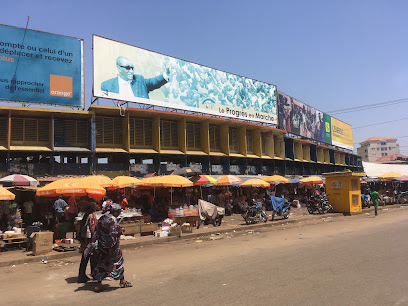
Guinéenne de l'e-cigarette
Explore Guinéenne de l'e-cigarette, Conakry's top vaporizer store for all your vaping needs, from devices to delicious e-liquids.
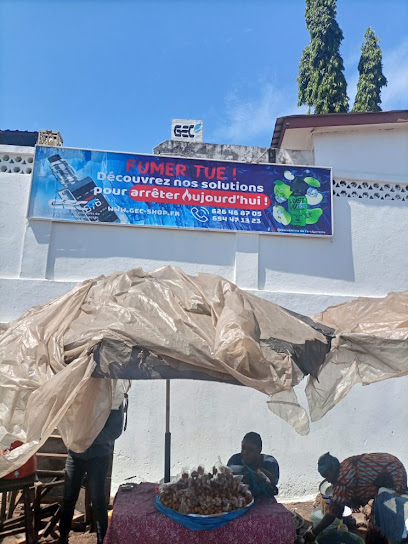
Banian Market
Discover the vibrant culture and local traditions at Banian Market, a bustling hub for fresh produce, crafts, and culinary delights in Guinea.
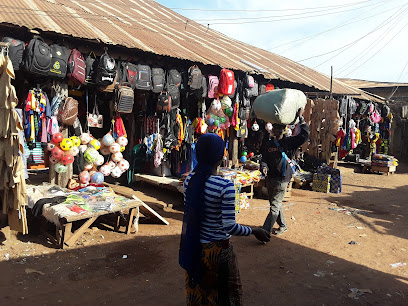
Usine Sobragui a Kissidougou
Explore Usine Sobragui in Kissidougou, where local craftsmanship meets vibrant culture in a unique shopping experience.
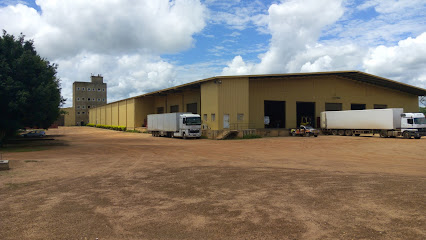
Arabinènè Marketplace
Explore Arabinènè Marketplace in Conakry for unique souvenirs, vibrant local culture, and an authentic shopping experience in Guinea.
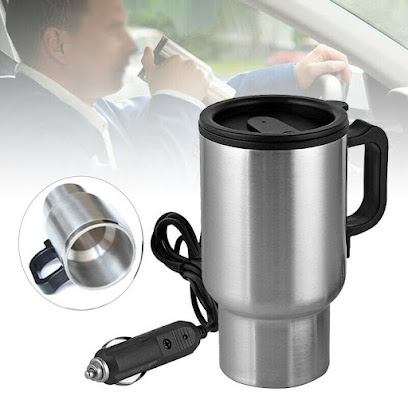
Superette
Discover the vibrant flavors and local culture at Superette, a charming grocery store in Kissidougou, Guinea, perfect for tourists seeking authentic experiences.
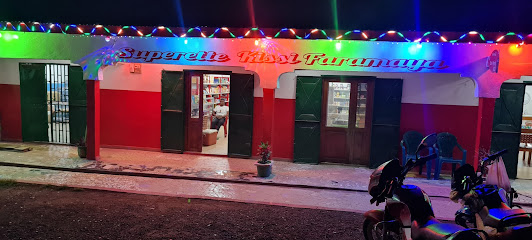
Amadou diallo
Experience the heart of Bissikrima at Amadou Diallo, where local culture and shopping intertwine in a vibrant atmosphere.
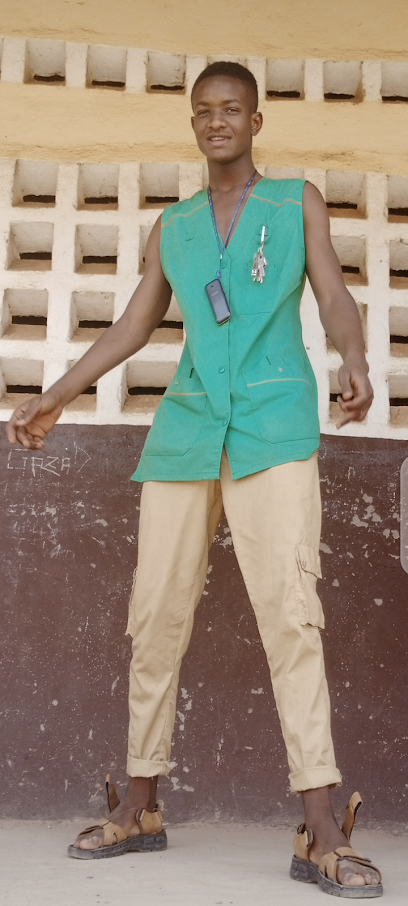
Cyber Zator
Explore the latest electronics and tech innovations at Cyber Zator in Faranah, Guinea – a tech paradise for every traveler.
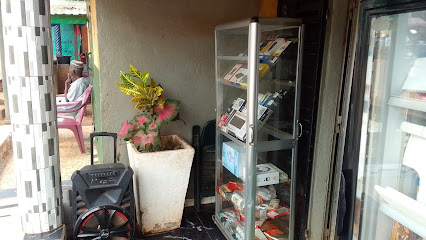
Mabalka investment LTD
Discover unique fashion accessories at Mabalka Investment LTD in Conakry, where local craftsmanship meets contemporary style for every fashion enthusiast.
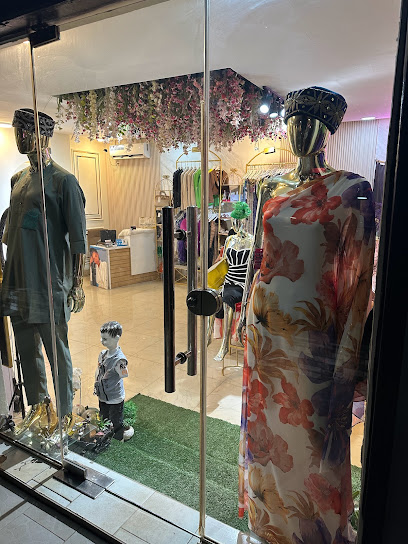
Adama Tiro BOUTIQUE
Discover cutting-edge mobile technology at Adama Tiro BOUTIQUE, where friendly service meets the latest gadgets in Tiro, Guinea.
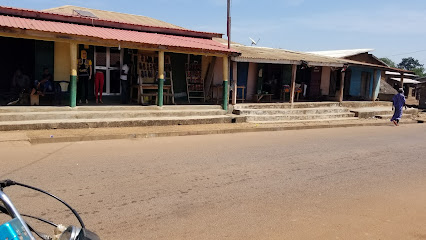
établissement bah souleymane et fils
Experience the sweetness of Kissidougou at Bah Souleymane et Fils, a delightful shopping mall and dessert shop offering local treats and treasures.
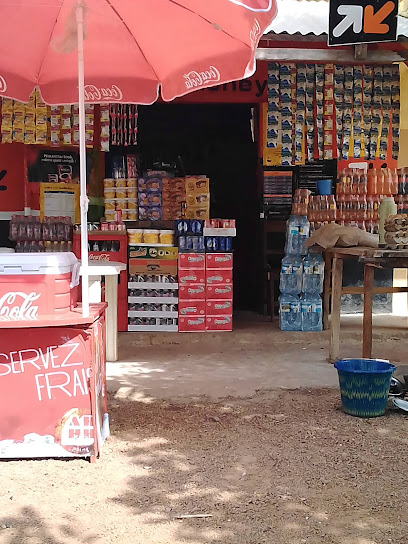
Mobile Boutique
Discover local culture and essentials at Mobile Boutique, a vibrant supermarket in Kissidougou, perfect for tourists and locals alike.

Numéro
Experience the charm of Kissidougou with unique wedding souvenirs at Numéro, a shop that celebrates local craftsmanship and culture.
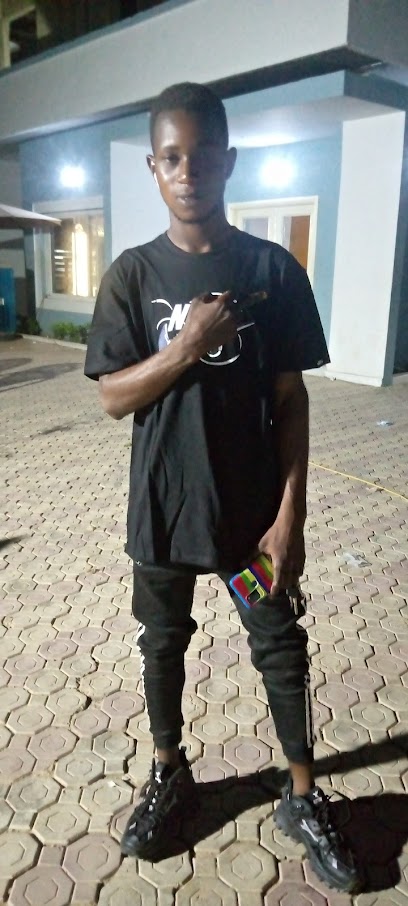
ELHADJ YAYA Boutique
Explore the vibrant styles of Guinea at ELHADJ YAYA Boutique, where traditional meets contemporary in the heart of Tiro.
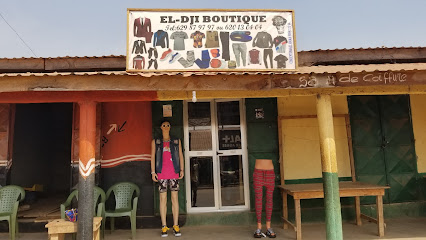
Magasin de daouda
Explore the vibrant Magasin de Daouda in Bissikrima for an authentic shopping experience showcasing local culture and craftsmanship.
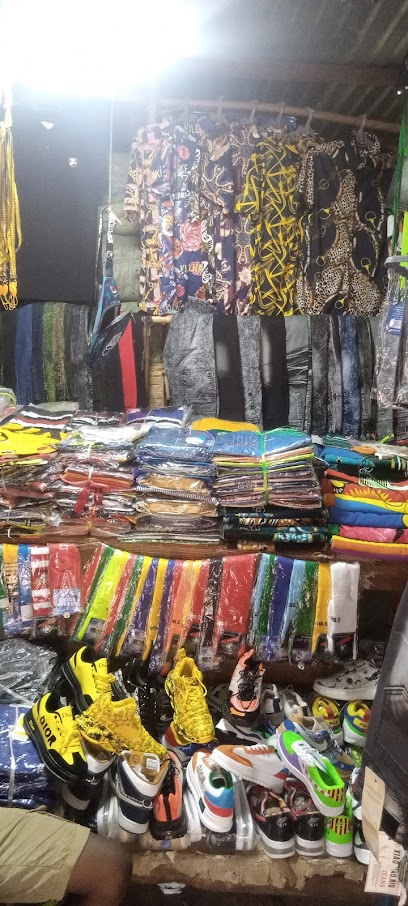
Essential bars & hidden hideouts
Avenue
Experience the vibrant flavors of Guinea at Avenue, a top-rated restaurant in Conakry known for its authentic cuisine and warm atmosphere.
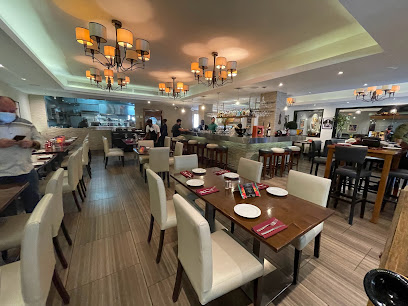
Favela
Discover the culinary delights of Favela, a vibrant restaurant in Conakry, Guinea, offering authentic local dishes in a lively atmosphere.
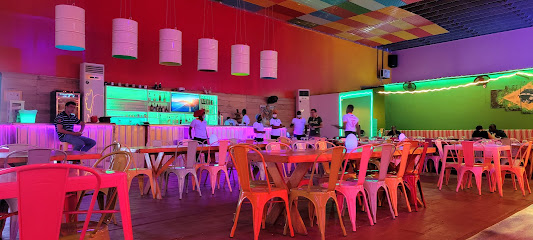
MLS Lounge Bar
Experience the vibrant nightlife of Conakry at MLS Lounge Bar, where great drinks and friendly vibes await you.
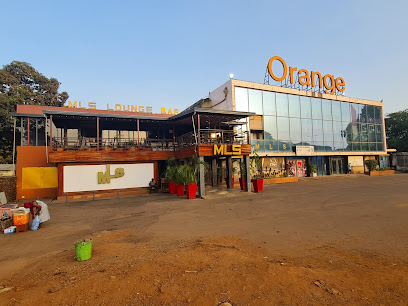
NOMAD
Experience the vibrant flavors of brunch at NOMAD in Conakry, where local ingredients meet contemporary culinary artistry.
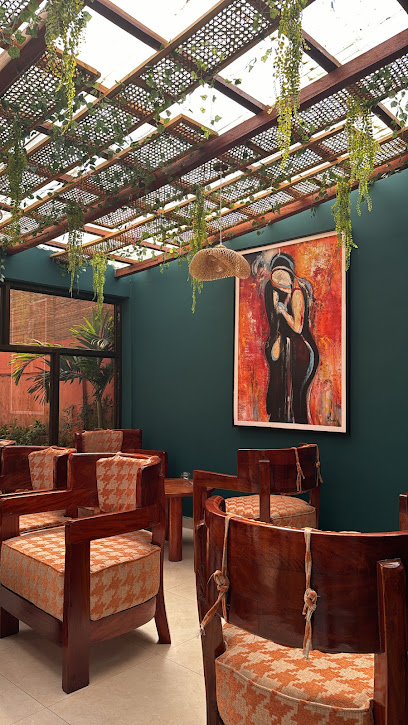
Club BEMBEYA
Discover the vibrant nightlife at Club BEMBEYA, a premier night club in Conakry, Guinea, where music and culture come alive.
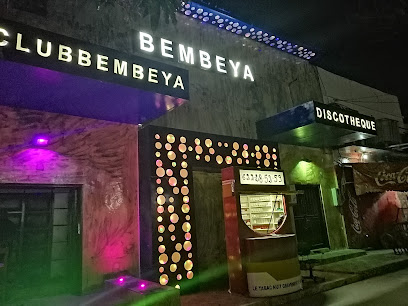
Castel Club - Belles Vues
Discover Castel Club - Belles Vues in Conakry, a vibrant bar offering stunning views, exceptional drinks, and lively entertainment for an unforgettable night out.
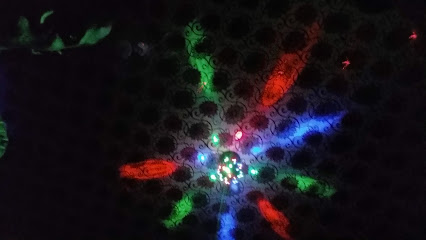
Times Square Resto & Lounge
Discover the vibrant ambiance of Times Square Resto & Lounge in Conakry, where flavorful dishes and exquisite hookah await every traveler.
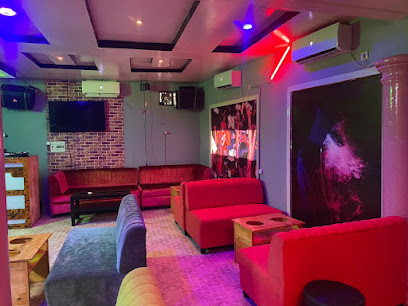
Restaurant Africana
Experience the flavors of Guinea at Restaurant Africana, a culinary haven in Conakry offering both local and international dishes.
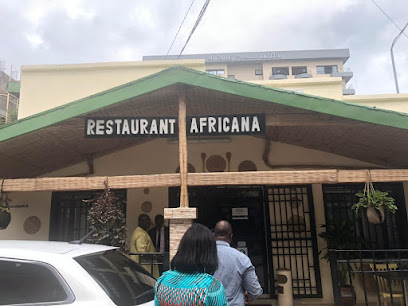
Le Baron
Experience the lively ambiance of Le Baron, Conakry's top cocktail bar offering creative drinks and a vibrant nightlife scene.
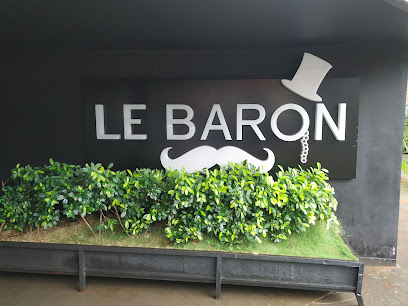
Geneva Night Club Conakry
Discover the pulsating nightlife of Conakry at Geneva Night Club, where music and dance create an unforgettable experience every night.

Bar Kolaboudji Camayene
Discover the vibrant nightlife at Bar Kolaboudji Camayene in Conakry, where local culture meets an inviting atmosphere and refreshing drinks.

QG Gnakry Vacance
Discover the vibrant atmosphere and local flavors of Conakry at QG Gnakry Vacance, a lively bar perfect for unwinding after your adventures.
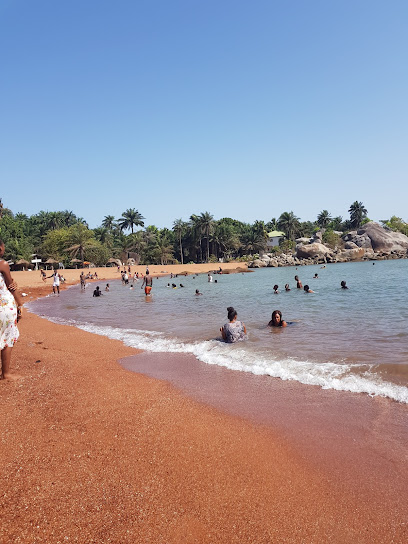
The Best Lounge & Bar
Discover the perfect blend of relaxation and local flavor at The Best Lounge & Bar in Conakry, Guinea, where every sip tells a story.
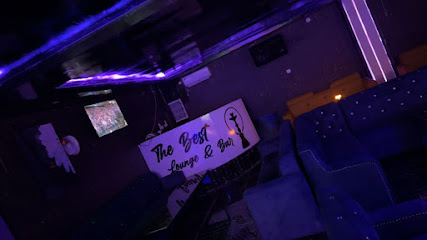
Café bar
Experience the vibrant atmosphere of Conakry at this charming café bar, offering a taste of local culture and refreshing beverages.
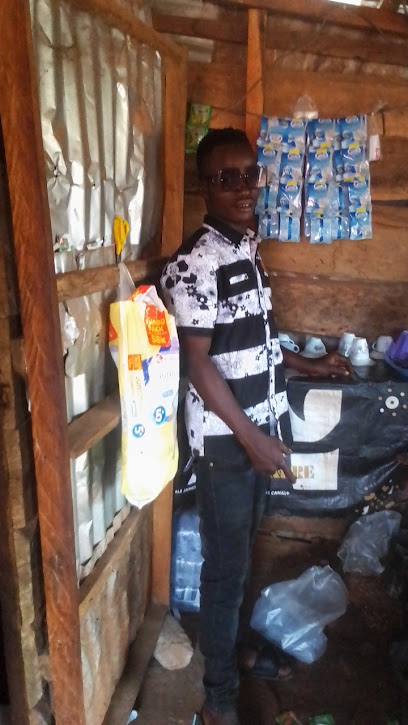
Local Phrases
-
- HelloMarhaba
[Mar-ha-ba] - GoodbyeSalam
[Sa-lam] - YesEey
[Eey] - NoAlaa
[A-la] - Please/You're welcomeMin fadlik
[Min fad-lik] - Thank youBaraka
[Ba-ra-ka] - Excuse me/SorrySamahani
[Sa-ma-ha-ni] - How are you?Kifach rahlik?
[Ki-fach ra-hlik] - Fine. And you?Labas. Ou ntia?
[La-bas. Ou ntia] - Do you speak English?Kayn tatakallam inglizi?
[Kayn ta-ta-kal-lam in-gli-zi] - I don't understandAna ma fahimch
[A-na ma fa-himsh]
- HelloMarhaba
-
- I'd like to see the menu, pleaseBghit nchuf lmenu, min fadlik
[B-ghit n-chuf l-men-u, min fad-lik] - I don't eat meatAna maakolch lkhodra
[A-na ma-a-kolsh l-kho-dra] - Cheers!Chokran!
[Cho-kran] - I would like to pay, pleaseBghit neddah, min fadlik
[B-ghit ne-ddah, min fad-lik]
- I'd like to see the menu, pleaseBghit nchuf lmenu, min fadlik
-
- Help!Aidini!
[A-i-di-ni] - Go away!Rah hadak!
[Ra-ha-dak] - Call the Police!Siri lshurta!
[Si-ri l-shur-ta] - Call a doctor!Siri tabib!
[Si-ri ta-bib] - I'm lostAna dayer
[A-na da-yer] - I'm illAna mrid
[A-na m-rid]
- Help!Aidini!
-
- I'd like to buy...Bghit nshri...
[B-ghit n-shri] - I'm just lookingAna kayn nchuf
[A-na kayn n-chuf] - How much is it?Chhal hiya thamana?
[Ch-hal hi-ya tha-ma-na] - That's too expensiveHadchi ghalia bzzaf
[Had-chi gha-li-a b-zzaf] - Can you lower the price?Wach tdir tanzil thamana?
[Wa-ch t-dir tan-zil tha-ma-na]
- I'd like to buy...Bghit nshri...
-
- What time is it?Ch7al fih?
[Ch-hal fi-h] - It's one o'clockSaa wahda
[Saa wah-da] - Half past (10)Nisf 3achra
[Nisf a-ach-ra] - MorningSbah
[S-bah] - AfternoonDhor
[D-hor] - Evening3asha
[3a-sha] - YesterdayM3a9er
[M-3a-9er] - TodayLyawm
[L-yawm] - TomorrowGhadwa
[Gha-dwa] - 1Wa7ed
[Wa-hed] - 2Jouj
[Jouj] - 3Tlata
[Tla-ta] - 4Arbaa
[Ar-baa] - 5Khamsa
[Kham-sa] - 6Setta
[Set-ta] - 7Sba3
[S-ba-a] - 8Tmaniya
[Tma-ni-ya] - 9Tsa3da
[T-sa-a-da] - 103achra
[a-ach-ra]
- What time is it?Ch7al fih?
-
- Where's a/the...?Wincayn...?
[Win-cayn] - What's the address?Ch7al f l3nwan?
[Ch-hal f l-3n-wan] - Can you show me (on the map)?Wach tdir tsawar li (3la lkharta)?
[Wa-ch t-dir t-sa-war li (3-la l-khar-ta)] - When's the next (bus)?Wach fi9a?
[Wa-ch fi-qa] - A ticket (to ....)Biliet li...
[Bi-li-et li]
- Where's a/the...?Wincayn...?
History of Faranah
-
Faranah, located in the heart of Guinea, has roots that trace back to the early Malinke people. The area was initially settled due to its fertile lands and proximity to the Niger River, which provided sustenance and a means of transport.
-
During the late 19th century, Faranah fell under French colonial rule. The French established administrative and military posts in the region, significantly influencing local culture and infrastructure. The colonial era left a lasting impact on Faranah’s architecture and urban planning.
-
Faranah's geographical location made it a strategic point during various historical events. During the late 19th and early 20th centuries, it served as a critical juncture for trade routes, which facilitated the movement of goods and people across West Africa.
-
Following Guinea’s independence from France in 1958, Faranah became an important symbol of the new nation. The city’s development was prioritized, and it grew as an administrative and educational center. The establishment of the Julius Nyerere University in Faranah marked its importance in the national educational landscape.
-
Faranah is renowned for its rich cultural heritage. Traditional Malinke music and dances are integral to the local culture. The annual festivals and ceremonies are vibrant displays of Faranah's cultural identity, featuring traditional attire, music, and dance.
-
In recent years, Faranah has seen infrastructural improvements and economic development. The city has expanded its agricultural base, with rice and fruit cultivation playing significant roles. Development projects have also focused on improving healthcare and education facilities.
Faranah Essentials
-
Faranah is accessible primarily via air travel through the Conakry International Airport (also known as Gbessia International Airport), which is approximately 400 kilometers from Faranah. From Conakry, you can take a domestic flight to Faranah Airport, which offers limited services. Alternatively, you can travel by road using a private car or bus; the journey typically takes around 8 to 10 hours depending on road conditions. It is recommended to check the current status of domestic flights and road conditions before planning your trip.
-
Within Faranah, transportation options include taxis, minibuses, and motorcycle taxis (known locally as 'moto-taxis'). Taxis are a convenient option for traveling within the town and can be hired for longer trips to nearby areas. Minibuses operate on fixed routes and are a cost-effective mode of transport, though they can be crowded. Moto-taxis are suitable for short distances but ensure to agree on a fare beforehand. Renting a car is also an option for greater flexibility, but be aware that road conditions may vary.
-
The official currency of Guinea is the Guinean Franc (GNF). While credit cards are accepted in some hotels and larger establishments, cash is the preferred method of payment in most places. It is advisable to carry sufficient cash, as ATMs are limited and may not always be operational. Exchanging money at official exchange bureaus or banks is recommended to get the best rates. Always ensure you have smaller denominations for easier transactions.
-
Faranah is generally safe for tourists, but it is essential to take standard precautions. Avoid walking alone at night, especially in poorly lit or unfamiliar areas. Petty crimes like pickpocketing can occur, so always keep an eye on your belongings in crowded places. Certain neighborhoods may have higher crime rates; it is best to consult local advice or your accommodation provider for up-to-date information on areas to avoid. Always remain vigilant and aware of your surroundings.
-
In case of emergency, dial 117 for police assistance and 118 for medical emergencies. Faranah has a local hospital and several clinics where you can seek medical attention. It is highly recommended to have travel insurance that includes coverage for medical emergencies and evacuation. Pharmacies are available for minor health issues, but it is wise to carry any essential medications with you. Keep a list of emergency contacts and local embassy or consulate details handy.
-
Fashion: Do dress modestly, particularly when visiting religious sites or rural areas. Avoid wearing overly revealing clothing. Religion: Do respect local customs and traditions; remove your shoes when entering mosques and dress conservatively. Public Transport: Do be courteous and respectful to fellow passengers. Don’t eat or drink on public transport. Greetings: Do greet people with a handshake; a friendly 'Bonjour' or 'Bonsoir' is common. Eating & Drinking: Do try local dishes and accept food offerings graciously. Don’t refuse hospitality, as it is considered impolite.
-
To experience Faranah like a local, visit the bustling local markets where you can purchase fresh produce and traditional Guinean goods. Engage with locals who are often friendly and willing to share insights about their culture and history. Don’t miss the opportunity to explore the nearby Mount Nimba Strict Nature Reserve, a UNESCO World Heritage Site, for a unique experience of Guinea’s natural beauty. Participate in local festivals and events to immerse yourself in the vibrant community life.
Nearby Cities to Faranah
-
Things To Do in Magburaka
-
Things To Do in Voinjama
-
Things To Do in Kenema
-
Things To Do in Port Loko
-
Things To Do in Pujehun
-
Things To Do in Conakry
-
Things To Do in Bonthe
-
Things To Do in Gbarnga
-
Things To Do in Ganta
-
Things To Do in Sanniquellie
-
Things To Do in Kakata
-
Things To Do in Monrovia
-
Things To Do in Bamako
-
Things To Do in Buchanan
-
Things To Do in Quebo




